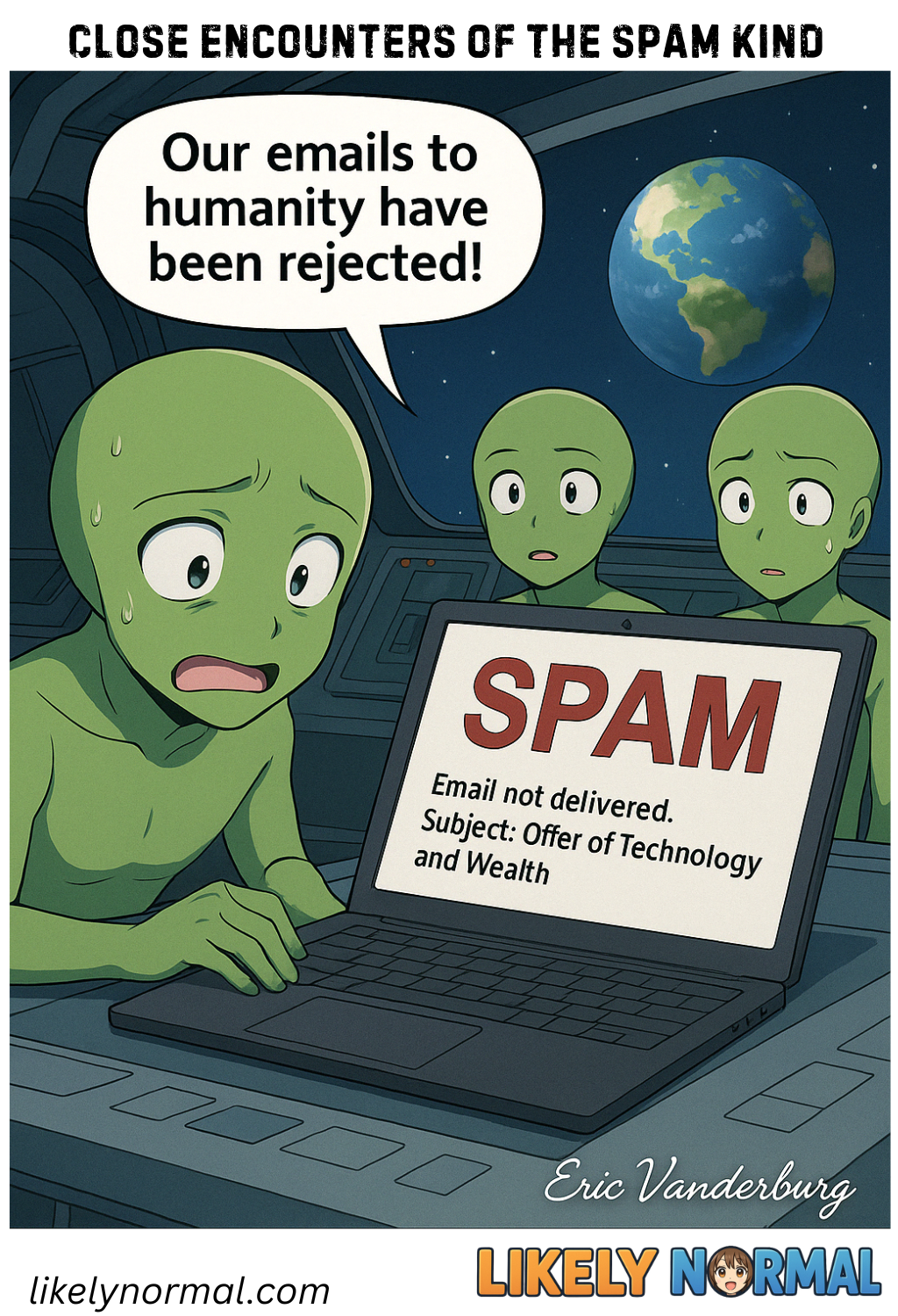Close Encounters of the Spam Kind
We’ve created a digital dystopia where our inboxes resemble a post-apocalyptic wasteland – endless stretches of Nigerian prince scams and suspicious “account alert” warnings, with the occasional legitimate email struggling to survive like the last can of beans in a zombie movie. The aliens picked a terrible time to make first contact. After crossing light-years of interstellar space with their grand diplomatic overture, their carefully crafted message “Offer of Technology and Wealth” got instantly flagged as spam and buried beneath 37 variations of “Hot Singles in Your Area.” They tried following up, but Gmail helpfully categorized their messages under “Promotions” between a Bed Bath & Beyond coupon and an ad for erectile dysfunction medication.
This isn’t just an extraterrestrial communication crisis – it’s our daily reality. Your sister’s baby shower invite? Spam folder. The bank fraud alert? Spam folder. That job offer you’ve been waiting for? Believe it or not, straight to spam. We’ve become so conditioned to delete first and ask questions never that actual important messages now need to perform circus acts to get noticed. The aliens eventually resorted to sending a physical postcard reading “PLEASE CHECK YOUR JUNK MAIL, WE BROUGHT CASSETTE TAPES OF WHALE SONGS,” which we naturally assumed was an avant-garde marketing ploy and threw away.
The tragic irony is that our spam filters have become too good at their job – they protect us so aggressively that they’ve essentially put the entire concept of digital communication in quarantine. We may never know how many alien civilizations, job opportunities, or free pizzas we’ve missed because an algorithm decided they looked “suspiciously interesting.” As we speak, there are probably interstellar diplomats, long-lost relatives, and at least one actual lottery winner desperately trying to reach us, their messages floating in the digital void alongside ads for male enhancement and questionable stock tips. The final insult? That “unsubscribe” button we keep clicking is almost certainly a lie.

Discussion ¬